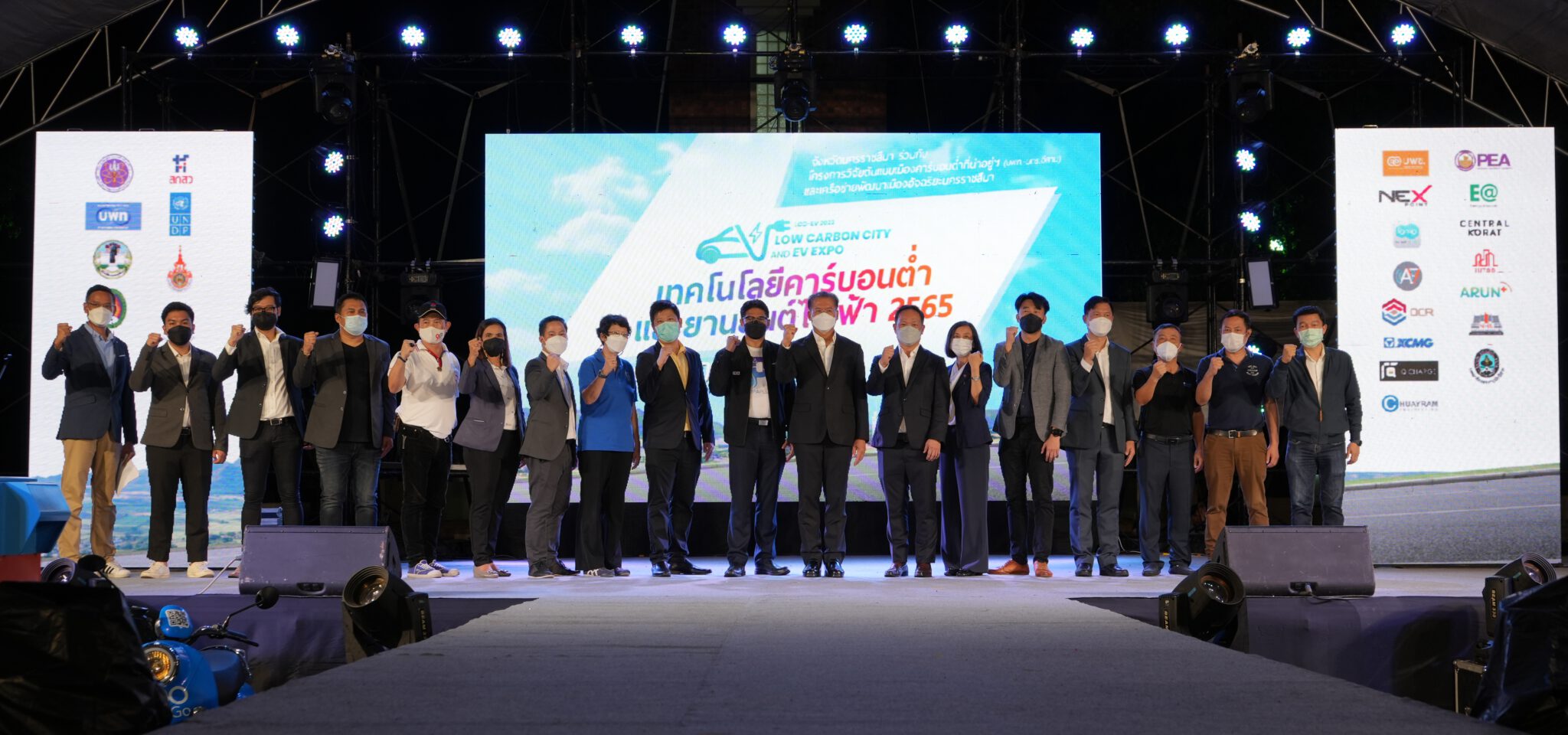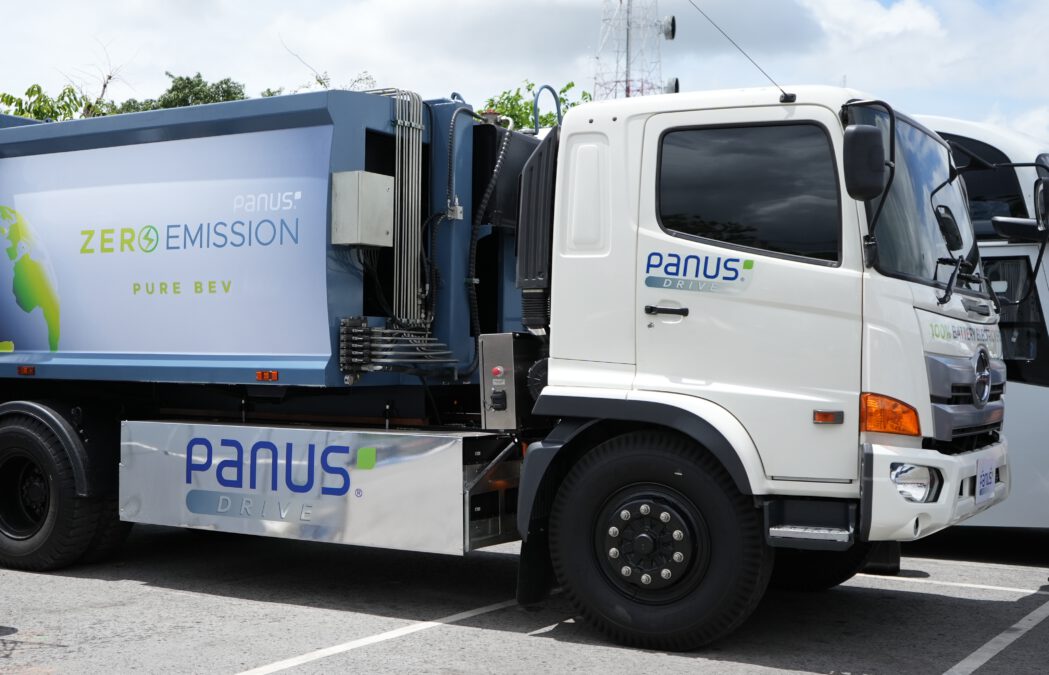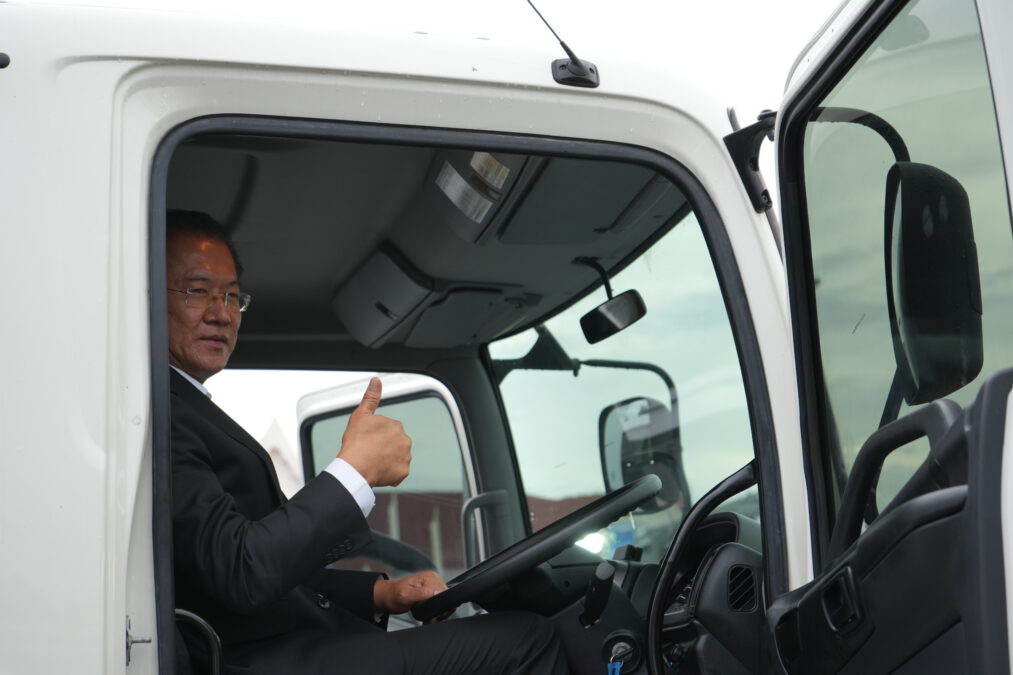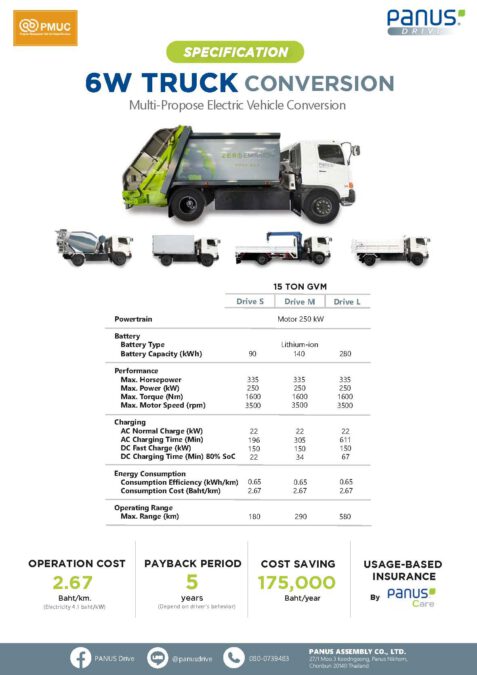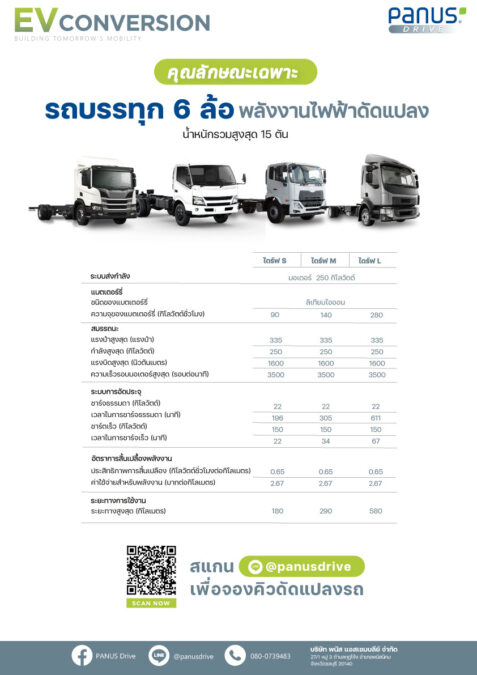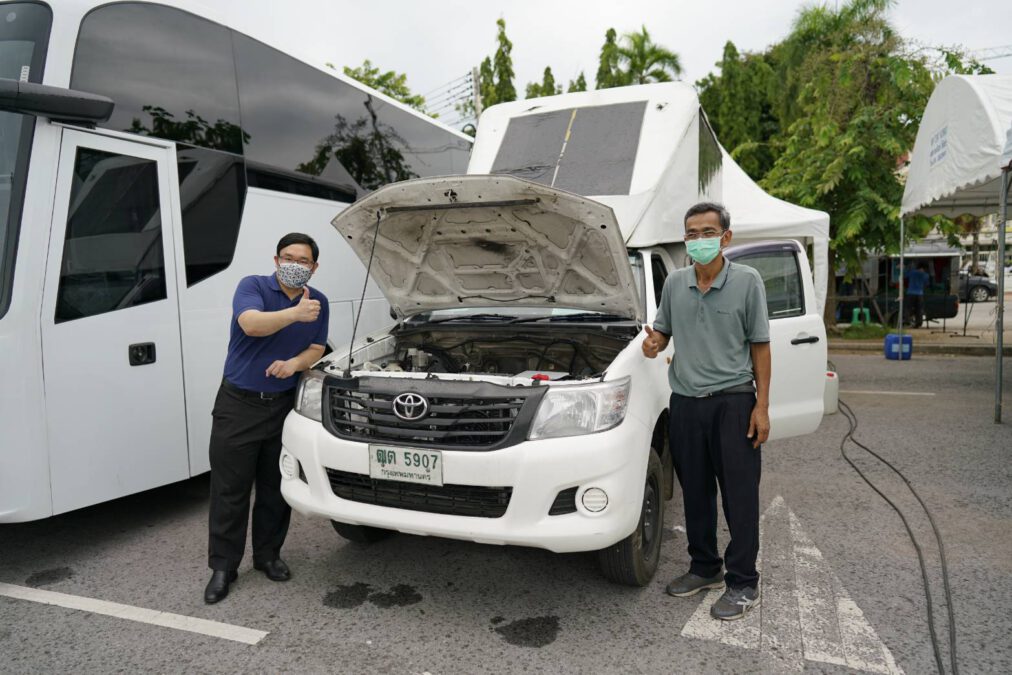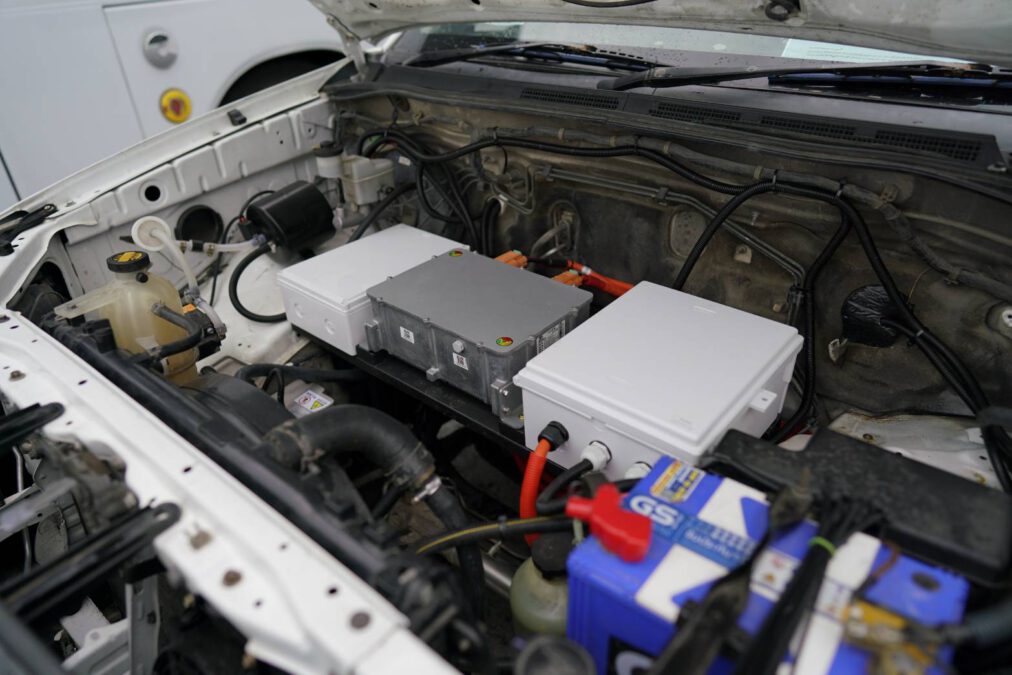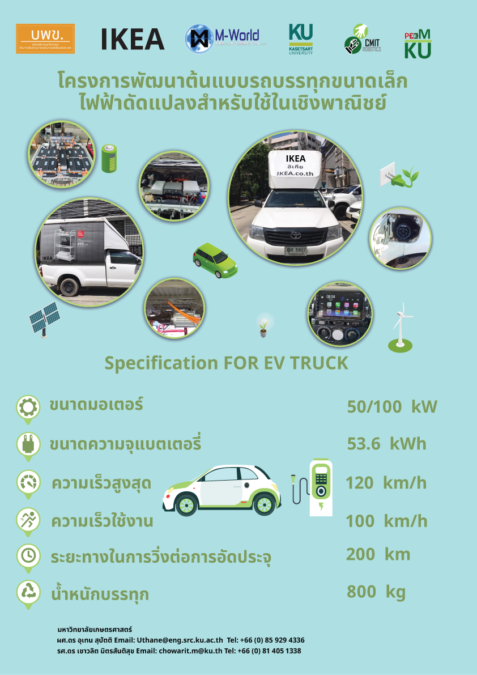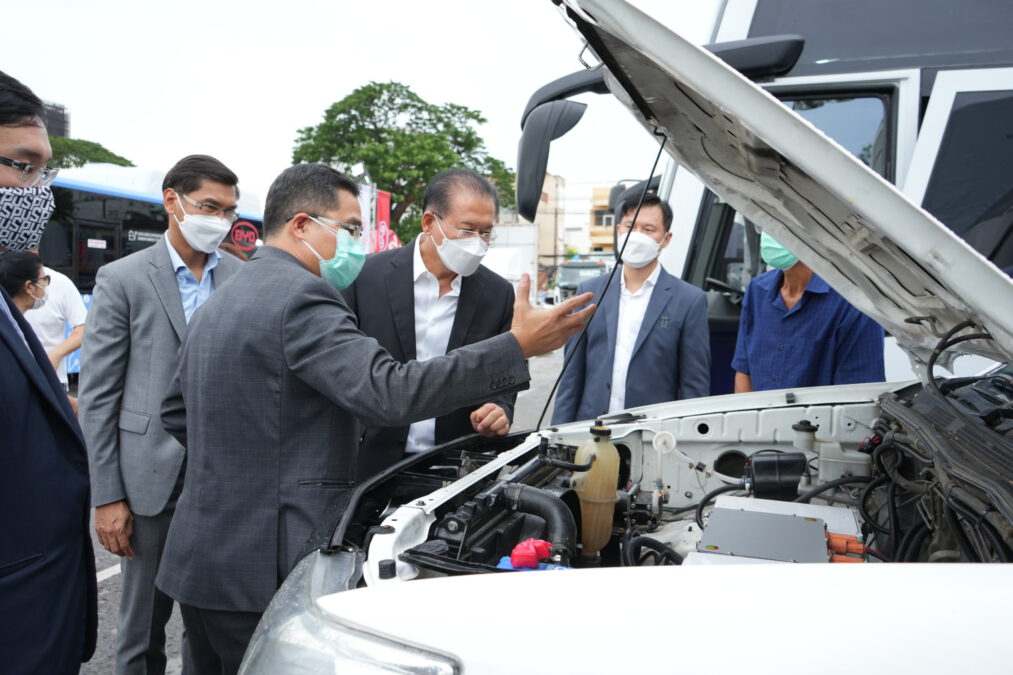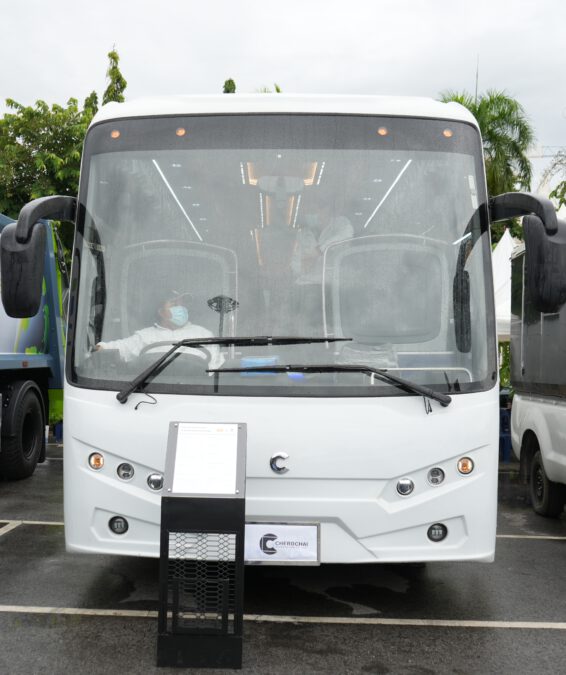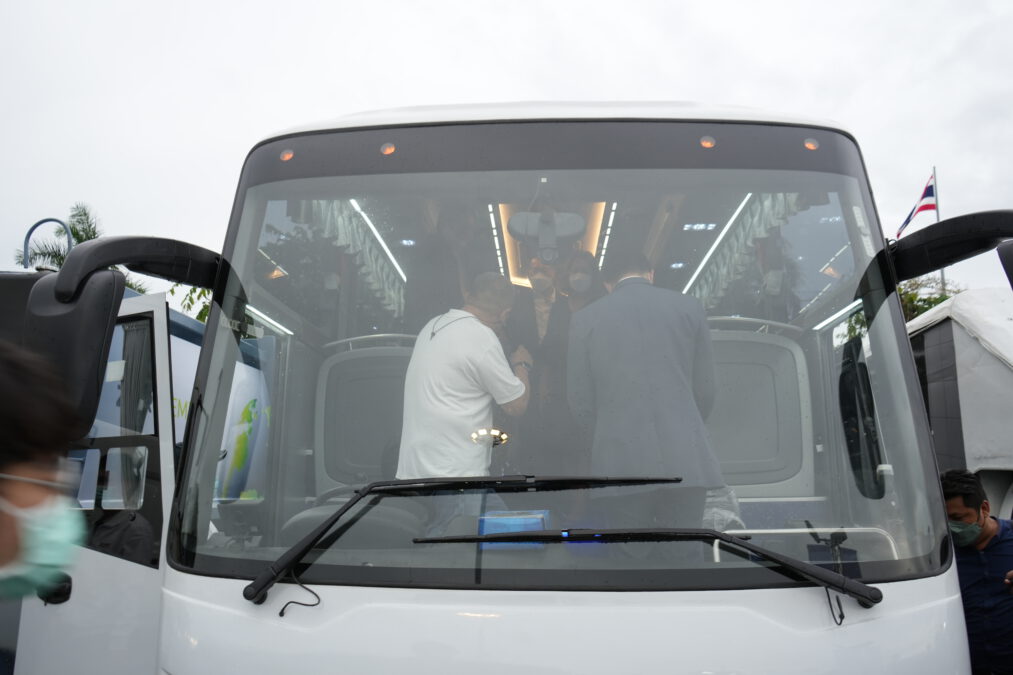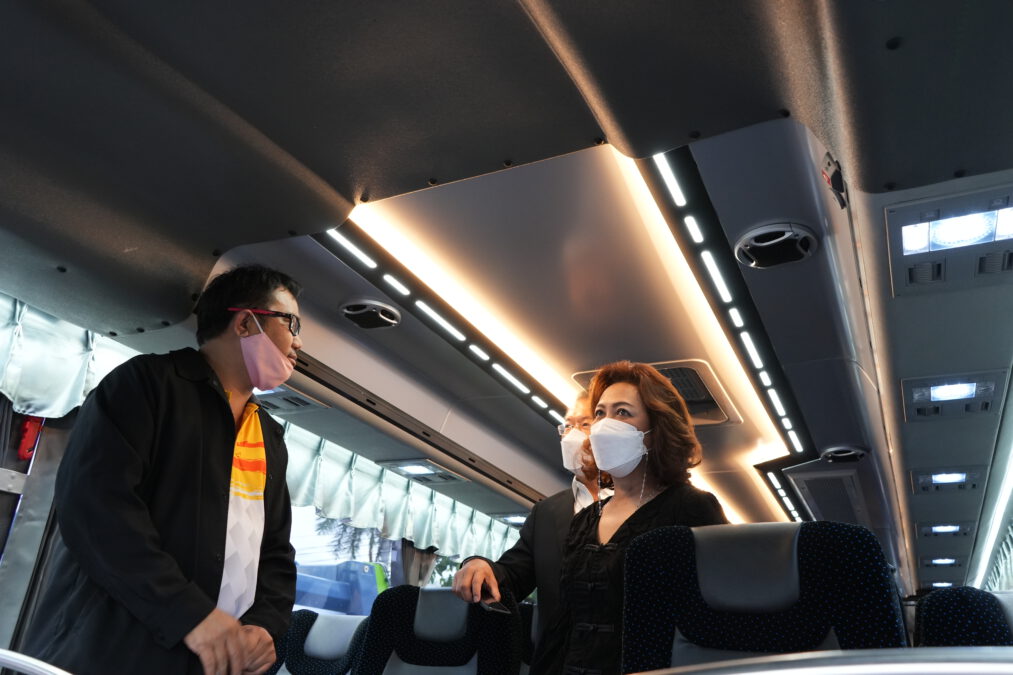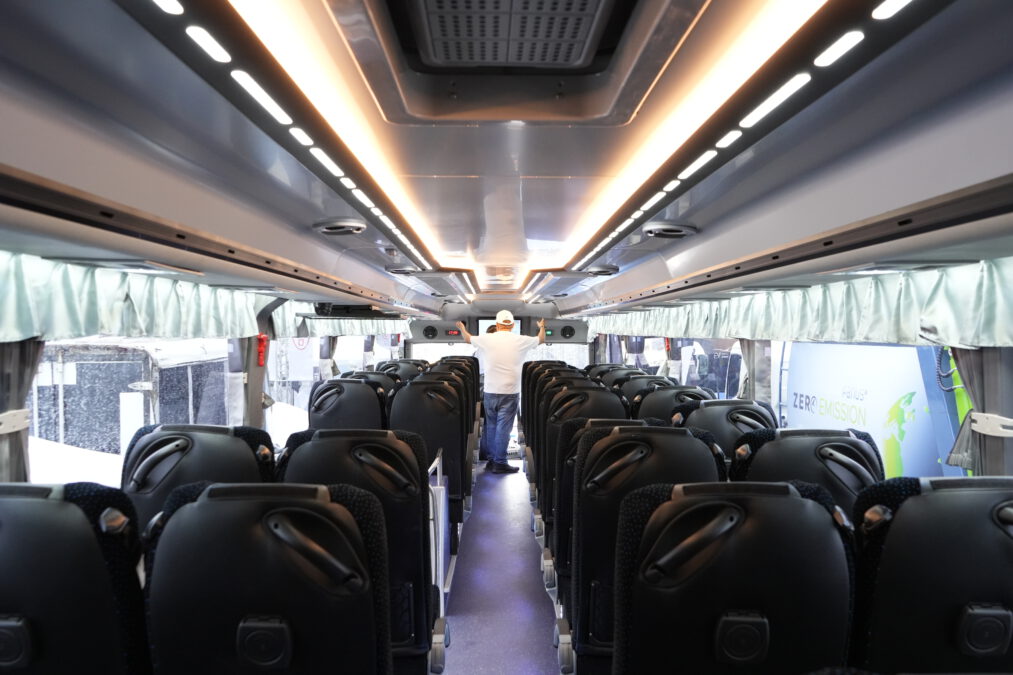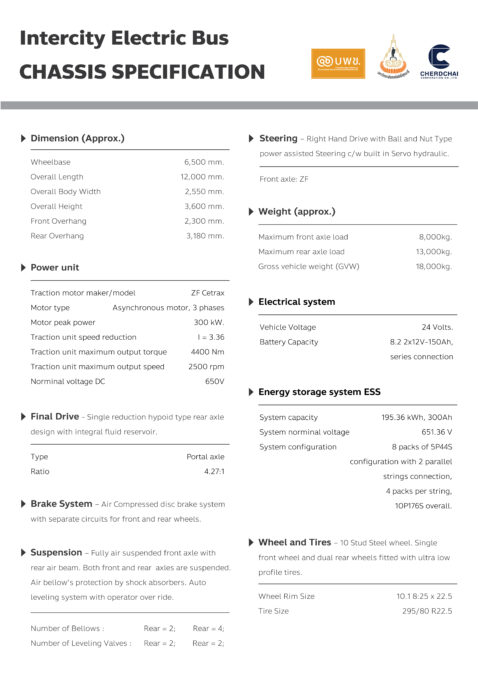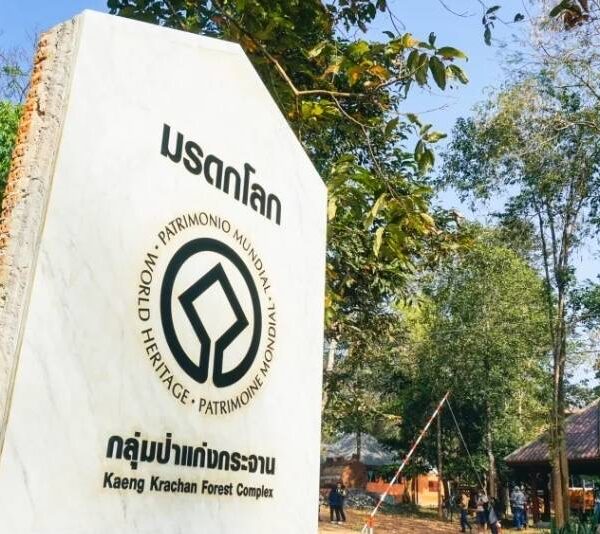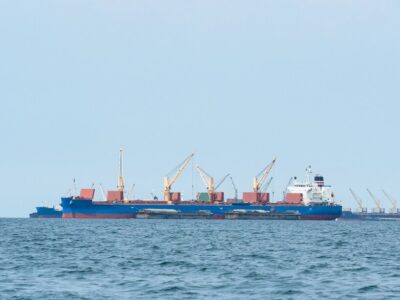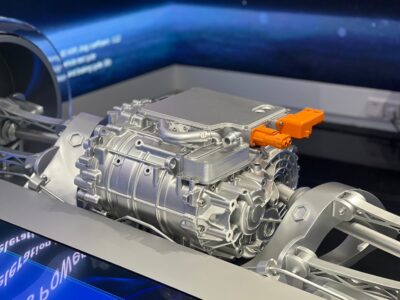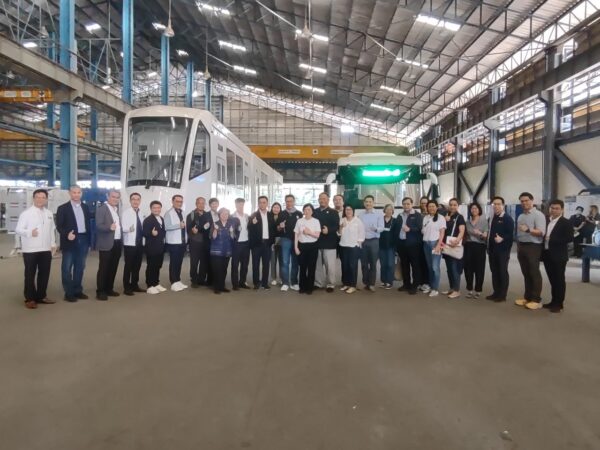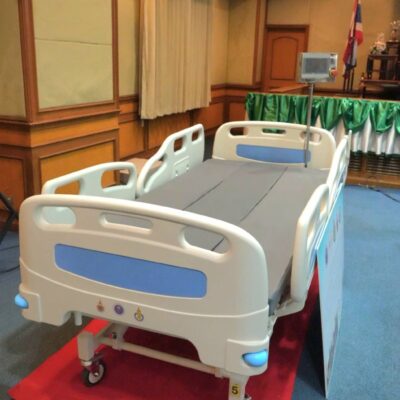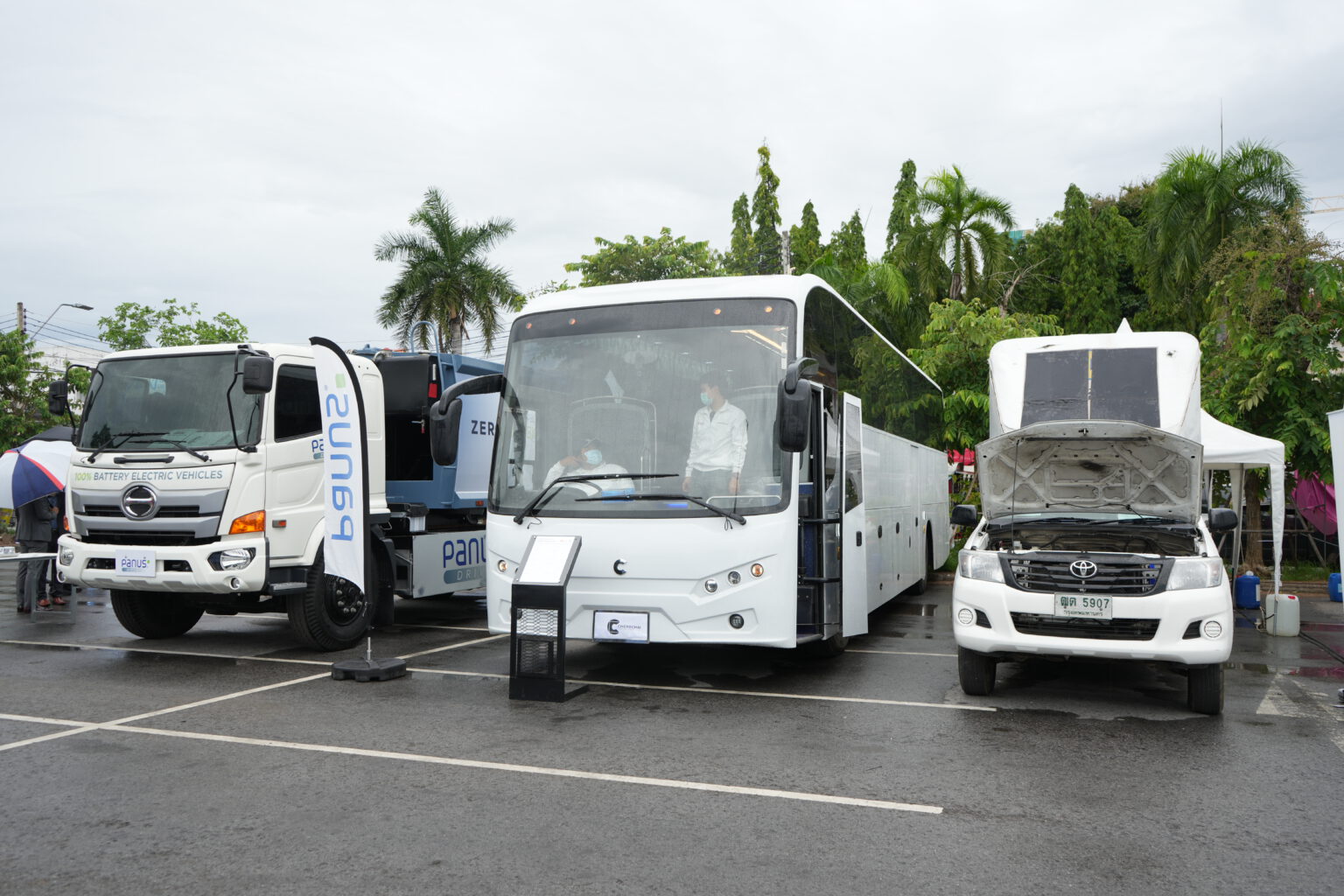
As widespread air pollution and environmental toxicity are reaching a critical level, contributing to problems in climate change, economic depression and declining quality of life for people around the world, many countries have taken their environmental policies more seriously. It is undeniable that vehicle exhaust is another factor that contributes to air pollution and affects the environment especially in large cities with large populations. Switching to an electric vehicle (EV) is another solution to the pollution problem that many countries are promoting.
Program Management Unit for Competitiveness (PMUC), under the Office of National Higher Education, Science, Research and Innovation Policy Council (NXPO), is another agency that aims to push Thailand to become an electric vehicle society as a way to tackle the environmental pollution crisis caused by the exhaust emissions of gasoline-powered combustion systems. Starting with the push for clean public transportation, which is another large industry potentially having an overall impact on the country. In the past, PMUC has provided research grants that focus on the development of engine conversion from the combustion engine, using oil derivatives, to the electric system (EV convertion) to promote clean transportation with electric vehicles. This is to include mass transit systems, such as electric buses, electric trams, electric motorcycles, electric boats, as well as commercial transport of goods, such as electric pickups, and electric trucks. The goal is to enable entrepreneurs to not have to invest in new vehicles, as existing vehicles can be converted to an electric system, which is more cost effective. It can also reduce overall transportation costs due to today’s ever-rising oil prices.
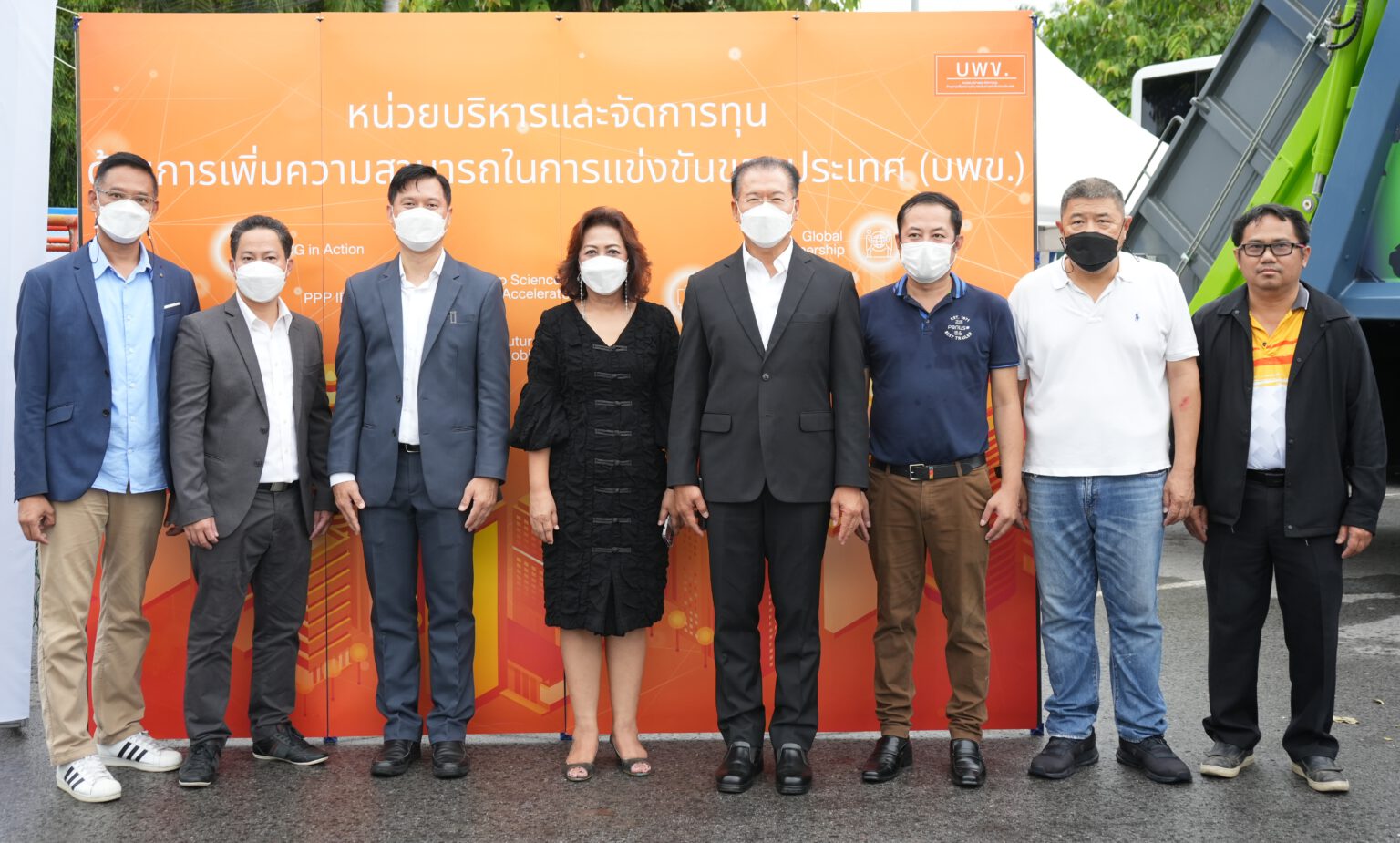
On May 20-22, PMUC, together with entrepreneurs and research and development teams that received funding from PMUC, put on a display of modified electric vehicles, such as modified electric 6-wheel trucks, which are a result of research and development effort by Panas Assembly Co., Ltd., in collaboration with King Mongkut Institute of Technology, Ladkrabang; modified electric buses by Cherdchai Corporation Co., Ltd., in collaboration with Suranaree University of Technology; and a modified electric pickup truck, by M-World Logistics (Thailand) Co., Ltd., in collaboration with Kasetsart University, all of which are a result of investment in research and development and were available for public viewing at the Low Carbon City & EV Expo 2022 at Nakhon Ratchasima City Hall. This reinforces the achievement of the goal to drive research work into real-world practical application in the market, to increase the competitiveness of Thai entrepreneurs, and to move the province towards becoming a livable low-carbon city. At the event, more than 50 small and large producers of electric vehicles and low-carbon technologies exhibited their products, which was a good sign indicating the changing of the electric automotive market in Thailand, which has begun and continue to expand.
modified electric 6-wheel truck, researched and developed by Panus Assembly Co., Ltd. in collaboration with King Mongkut’s Institute of Technology, Ladkrabang.
Modified Electric pickup trucks by M-World Logistics (Thailand) Co., Ltd. in collaboration with a research team from Kasetsart University.
Electric passenger bus by Cherdchai Corporation Co., Ltd. In collaboration with a research team from Suranaree University of Technology.
From the forum on the topic “The future of Thai electric vehicles and towards the goal of livable low-carbon cities” as a highlight from the event, the panelists, including Dr. Thanakan Wongdeethai, Ph.D., a subcommittee member of PMUC, Asst. Prof. Wimon Saen-um, Ph.D., Director of Innovation Business Unit, Panas Assembly Co., Ltd., Mr. Kittisak Wannakaew, Director of the Department of Research and Development of Electrical Systems (PEA), Mr. Surawut Cherdchai, Chief Executive Officer of Cherdchai Corporation Co., Ltd., and Mr. Krisada Utamote, President of the Thai Electric Vehicle Association, participated in a discussion on the situation of the Thai electric vehicle market. There are currently two types of EV vehicles in Thailand, namely those that are wholely manufactured locally in Thailand, and those that are only partially manufactured locally, with some locally-made parts, such as battery packs, which are then assembled onto imported car frames, thus making the EV market in Thailand an emerging market. Therefore, both modified electric cars or new electric vehicles seem to have a clearer growth trend currently. Today’s EV vehicles are categorized into two main types, namely personal vehicles and commercial transport vehicles, such as pickup trucks, 6-wheel trucks, 10-wheel trucks, and large trailers, etc. In the case of commercial transport vehicles, operators must consider the break-even point that must be reached, as well as energy consumption, which is one decisive factor determining each participant’s ability to compete in terms of cost saving. Incidentally, the market in the commercial transport vehicles segment in the country is growing as well. And it’s still in the early stages of competition, creating an opportunity for entrepreneurs to get into the commercial electric vehicle market.
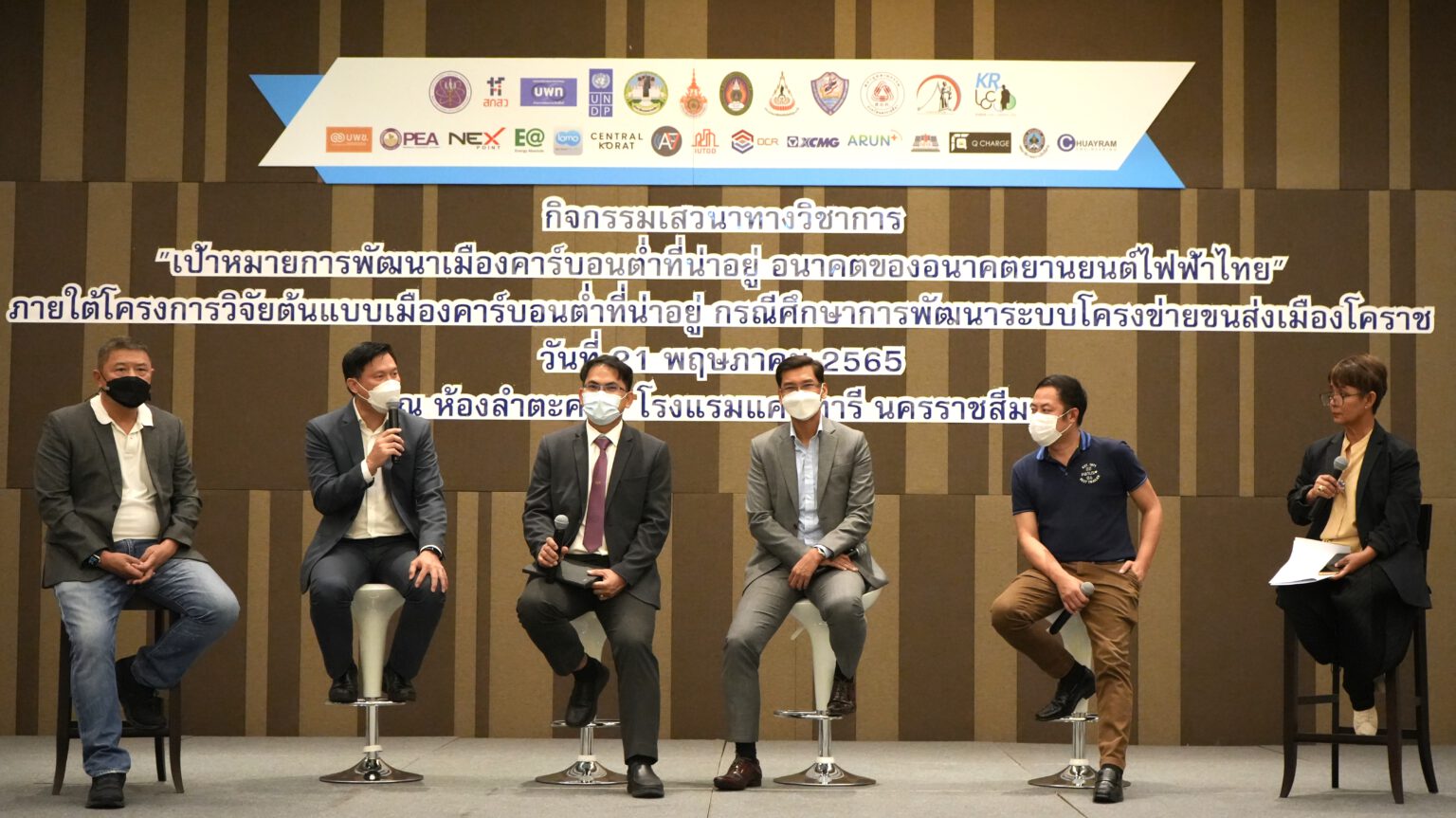
As for the readiness to support the use of electric vehicles in Thailand, currently, there are 5,000 registered 100% EV vehicles in Thailand, which in the next five years is expected to increase to more than 100,000 vehicles. Currently, the country has about 600 charging stations and about 22,000 power outlets nationwide, which is sufficient for current demand. However, the number of charging stations is expanding to accommodate the growing use of EVs in the future. In addition, EV roaming / EV consortium applications have been developed with many EV charging station operators to enable compatibility to increase convenience for users.
In terms of the readiness of entrepreneurs to enter the electric vehicle market, at present, both Panus Assembly Co., Ltd., and Cherdchai Corporation Co., Ltd., which are truck fleet operator, and the country’s major transport bus operator, respectively, are ready to step into the electric vehicle market. Cherdchai Corporation Co., Ltd. has worked with many universities in Nakhon Ratchasima to establish the Bus Intercity system, as well as to develop a platform to provide safety for people who use electric bus services. On the other hand, Panus Assembly Co., Ltd., has currently developed a software that works with modified electric trucks, and has cooperated with supply chain partners to localization parts supply. Furthermore the company has developed a custom conversion kit for commercial vehicles, which is ready to start exporting to users in the ASEAN market. This is another step towards the goal of providing necessary research funding by PMUC, which aims to empower Thai entrepreneurs to be able to compete on the international stage.
The switch towards 100% use of electric vehicles isn’t something which can happen overnight. Therefore, the modified electric vehicle market is considered another important market in the next 3-5 years, especially the modified electric pickup trucks and the modified electric motorcycles for commercial transport, which now have higher demand from the increasing need to lower transportation costs from oil-based fuel. But another very important thing is the personnel who have knowledge in both system integration and system maintenance. Currently, over 95% of people in the automotive industry are knowledgeable in engines, but less than 3% have knowledge in electric systems, creating a wide knowledge gap in the market. This is something for which Thailand must hurry to find a solution. For this reason, Thailand Professional Qualification Institute has established new occupations, such as professional electric chargers, electric vehicle repair technicians, etc., in order to support the changes in electric vehicle market that will occur in the future. This is in line with the goal of PMUC to support research which will have an overall impact on the country’s economy, in terms of creating a body of knowledge, creating jobs and creating innovations that will increase the country’s overall competitiveness.
